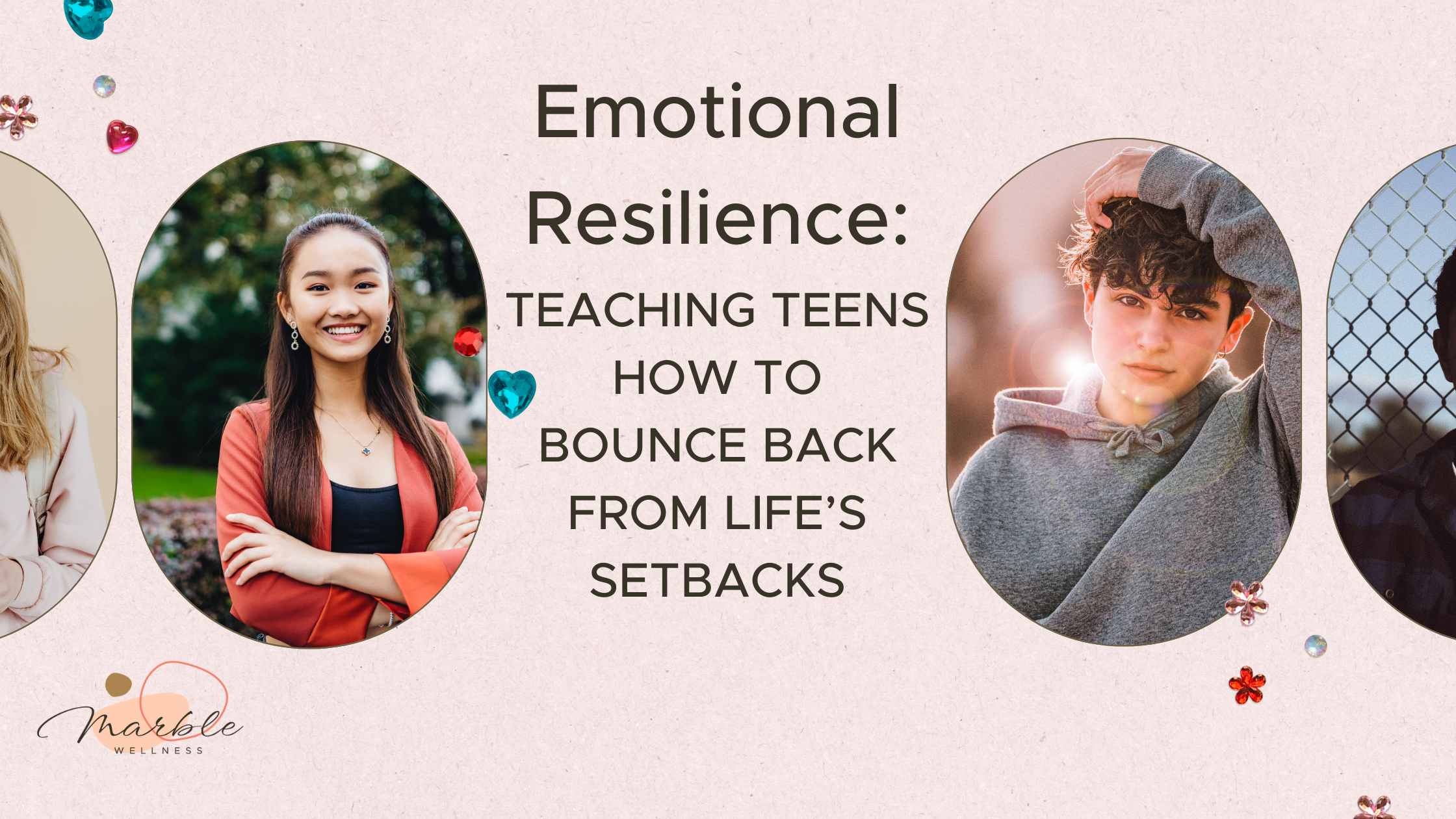Life is full of twists and turns. For teenagers navigating these challenges, setbacks can feel especially difficult. From academic pressures and friendship drama to disappointments like rejection or failure, these experiences can take a toll on their well-being. That’s why teaching emotional resilience and helping teens adapt, grow, and emerge stronger from adversity are essential life skills. As parents, educators, or mentors of teenagers, you can play a pivotal role in fostering emotional resilience in teens. Here’s how to help them manage life’s ups and downs with confidence and strength.
What Is Emotional Resilience?
Emotional resilience doesn’t mean pretending everything is fine or ignoring pain. Instead, it’s about giving teens the tools to process emotions, adapt to challenges, and view setbacks as opportunities for growth. Resilient teens approach life with a mindset that setbacks are the steps to growth, not obstacles.
7 Practical Strategies to Build Resilience
Here are actionable ways to help teens develop emotional resilience:
1. Normalize Setbacks
Teach teens that setbacks are a natural part of life, not a reflection of them or their worth. Remember to validate their experience first, because they deserve to feel heard and supported. Share your own experiences, or those of others, of overcoming challenges, and emphasize that growth can come from failing and that there are alternatives for how to approach these setbacks.
2. Encourage Emotional Awareness
Help teens identify and express their emotions through talking, journaling, or other creative outlets. Externalizing the things going on in their head is both healing and can bring awareness of potential ways to move forward or ways they can be supported.
3. Encourage teens to shift from “I can’t do this” to “I can’t do this yet.”
Celebrate effort, perseverance, and progress to build confidence and a sense of self-efficacy. Feeling seen for effort, instead of outcome, gives more focus on progress over perfection.
4. Teach Problem-Solving Skills
Guide teens in breaking up their challenges into more manageable steps. Encourage them to look for their desired outcome, brainstorm solutions, and attempt to work through their problems on their own. Be there as a source of help or assistance if needed. This fosters critical thinking while letting them know someone has their back.
5. Foster a Support Network
Resilience is reinforced with supportive relationships. Encourage teens to build strong connections with friends, family, teachers, or mentors, and show them that seeking help is a sign of strength.
6. Emphasize Self-Care
Teach the importance of balance and self-care. Encourage hobbies, exercise, and proper rest to recharge and build mental toughness. Help them understand that allowing themselves to recharge and take breaks is actually helping them have the energy to work through their problems.
7. Celebrate Their Resilience
Acknowledge and celebrate moments when teens bounce back from setbacks. Recognizing their resilience boosts confidence and reinforces their ability to handle future challenges.
Here are ways teens might demonstrate resilience:
- Recovering from Academic Challenges ~ Rather than letting one bad grade define their abilities, they take proactive steps to grow.
- Coping with Friendship Conflicts ~ Instead of hanging onto resentment or withdrawing from friends, they work to resolve the conflict through communication or focusing on strengthening other friendships.
- Adjusting to Change ~ Not shutting down when experiencing change, and instead focusing on their options and support system.
- Facing Sports or Extracurricular Setbacks ~ they spend their time improving their skills and developing a stronger mindset when things don’t go their way.
- Dealing with Social Pressures ~ A resilient teen sticks to their values and choices, even if it means standing out or facing criticism from peers.
- Handling Rejection ~ Whether it’s not getting accepted into a dream college or being turned down for a date, a resilient teen processes their disappointment and shifts their focus to other opportunities, recognizing that this doesn’t define their worth.
- Navigating Mental Health Challenges ~ A teen struggling with anxiety or depression might show resilience by seeking therapy, using healthy coping mechanisms, and gradually building tools to manage their mental health in a sustainable way.
Why Resilience Matters for Teens
Resilience equips teens to navigate life’s challenges. By teaching emotional resilience, you’re giving them a foundation to thrive not just during their teen years, but throughout their lives. Remember, resilience is a journey, not a destination. With support, teens can learn to embrace life’s challenges and grow into stronger individuals, ready to tackle whatever comes their way.
Start Therapy for Teens and Parents of Teens in the St. Louis Area
If you live in the St. Louis metro area and are ready to improve your mental health, our expert St. Louis therapists are here to help. Not only do we have a team of therapists in Ballwin, MO, but we have also recently expanded to serve the Lake St. Louis and Wentzville area! Reach out to our Client Care Coordinator today to discuss your therapy options, both in-person and via online therapy in Missouri.
Contact Us!
Learn About Our Group Offerings

Additional Counseling Services at Marble Wellness in St. Louis, MO
Marble Wellness Counseling services are designed to help set you on a path of living a more fulfilled, calm, and happy life. Our St. Louis area therapists have a variety of training backgrounds and areas of expertise. We specialize in anxiety, depression, grief, chronic illness, therapy for men, couples, and maternal overwhelm. Our practice also helps new moms with various postpartum concerns, moms in the thick of parenting, and moms with teens. We can also chat from wherever you are in the state with online therapy in Missouri. No matter where you are in your journey, we are here to help you thrive!



